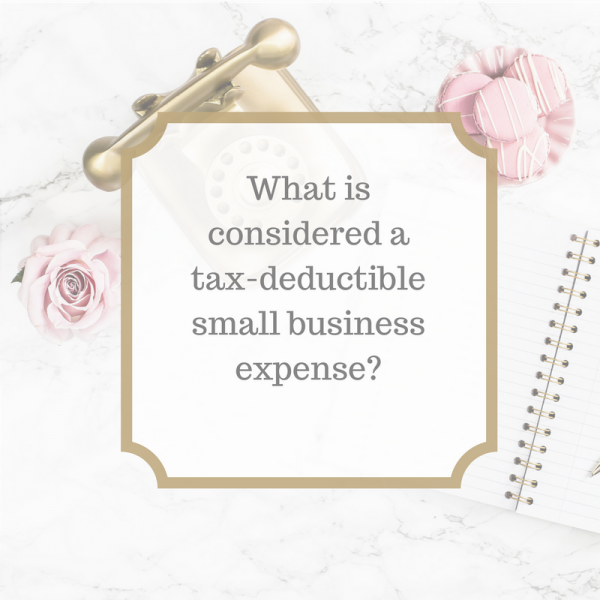
According to the Tax Code business expenses must be:
1.) Ordinary or “common” in your given business industry
2.) Necessary for you to run your business
3.) Reasonable or “fair” in your type of business environment
If your business expense meets these requirements then they will qualify for a deduction that will decrease the profits of your business for tax purposes. Business deductions are a good thing — the more you have the less tax liability your business has which means less tax you will need to pay at the end of the day.
When determining if something qualifies as a deductible business expense ask yourself the following:
Is this expense “helpful and appropriate” for my business?
For example: If you purchase a small computer for your consulting business this would be considered ordinary and necessary. However, if you purchase a laptop for your daughter to use for school purposes then it is not considered an ordinary and necessary business expense.
Remember that this is strictly business-based, this is not one size fits all. What is considered a deductible business expense for you may not be a deductible business expense for someone else. So only because your friend, who has a Florist shop, may deduct a specific expense does not mean that you, who own a restaurant, will be able to deduct a similar type of expense.
There are certain things that are never considered “ordinary and necessary” such as fines and penalties imposed by a government agency. So for example, traffic tickets or a late tax filing fee will not be tax deductible. However a business bank fee is tax deductible since it is not government imposed, but only if business related never personal related. Business management and administration fees, including bank charges, are acceptable business deductions but keep in mind that regular people (non-business owners) are not allowed to deduct ATM or bank fees, so take care to only claim those charges associated with your business accounts only.
Note: business penalties and fines are not allowed for tax purposes but this does not mean that you don’t include it in your business books. Do not get confused between business expenses on your books versus business expenses on your tax returns. For example, you need to keep a track of all of your business expenses for book purposes no matter what, including non-deductible expenses such as penalties and fines — it just means that for tax purposes it is not deductible and will be excluded as a business expense.
**Tip** When you are doing anything tax related always ask yourself “if I were to get audited would I be able to prove it to the IRS?” Keeping supporting documentation for every business transaction is so very important and can save your butt big time – always protect yourself and your business by following the rules, it is not worth getting in trouble with the IRS.
Have a question of your own? Submit them to [email protected] and write FAQ on the subject line! 🙂

Author: Rosy Conde, CPA
Rosy Conde is a financial coach and business strategist with a passion for learning and helping others by offering business and financial advise and tips. She serves as a guidance in helping passionate entrepreneurs, who have a desire to launch and run their own successful business in today's modern world.

